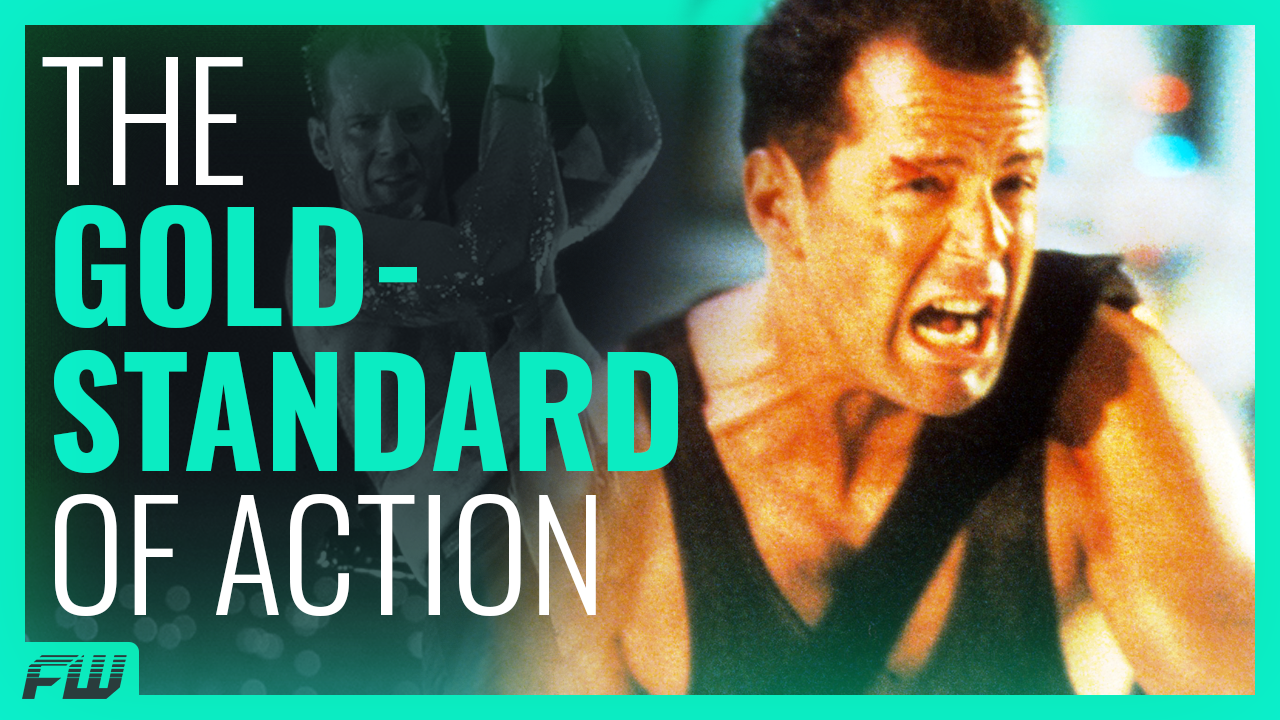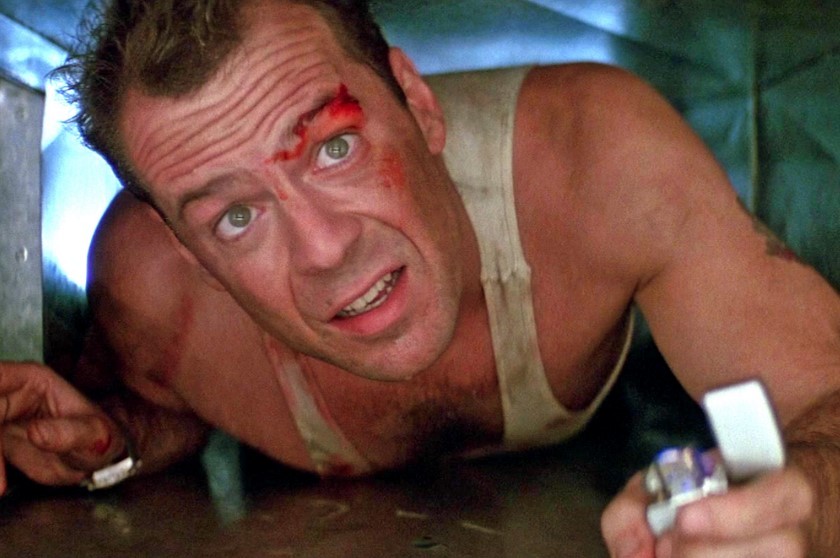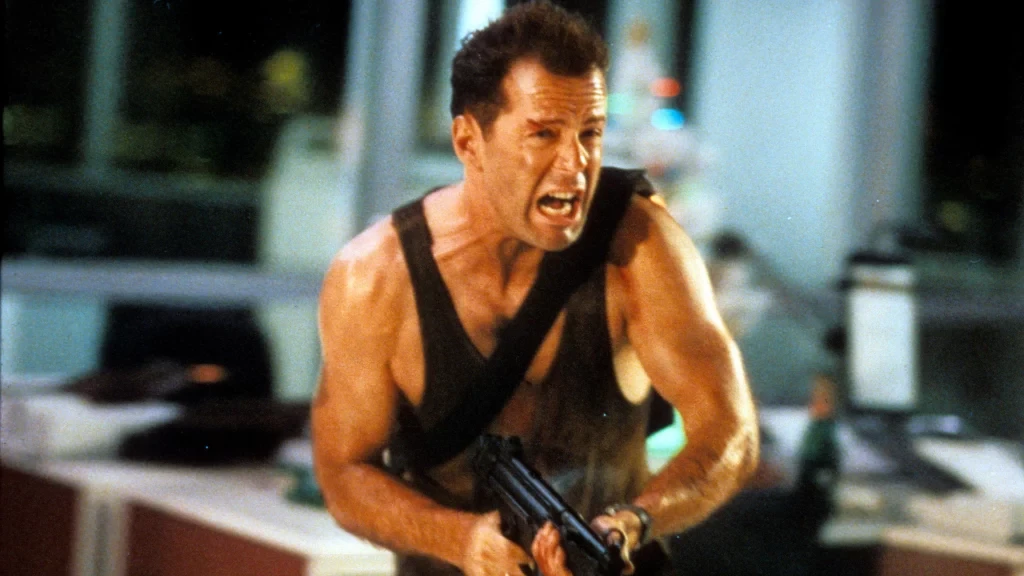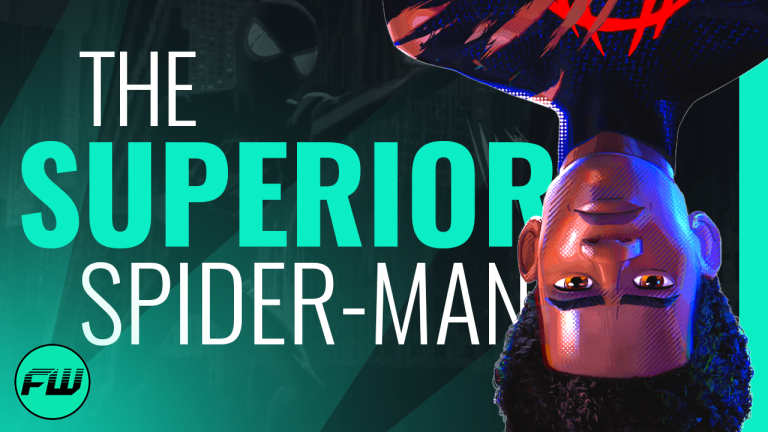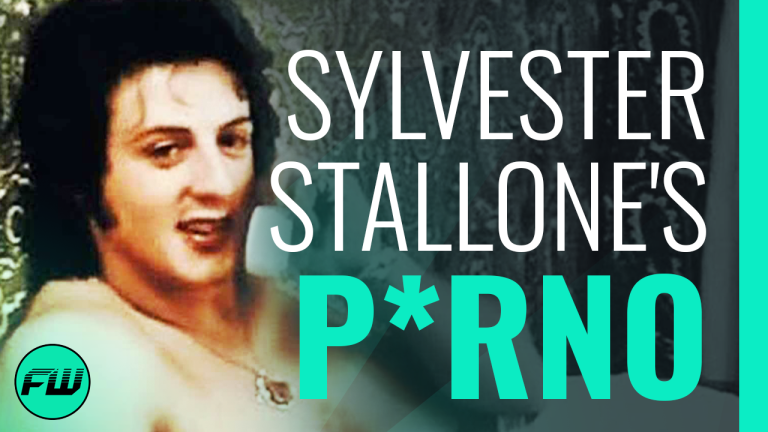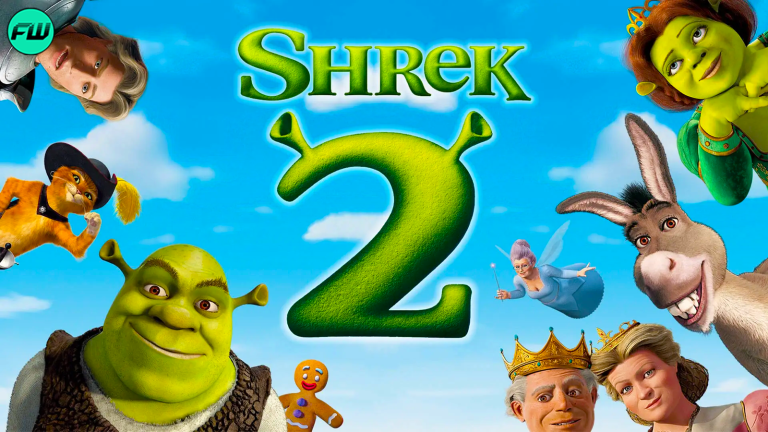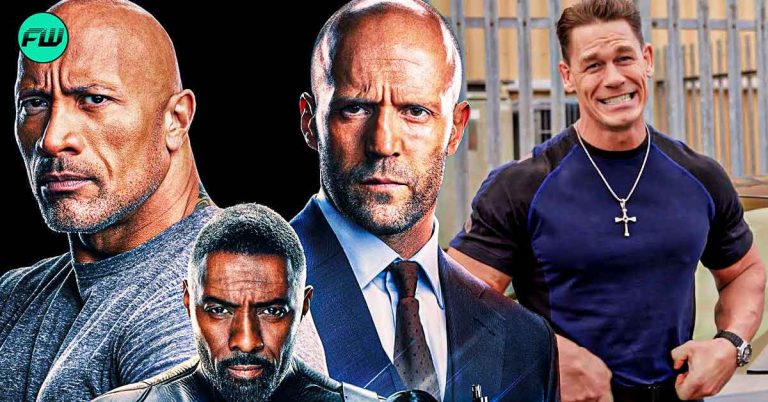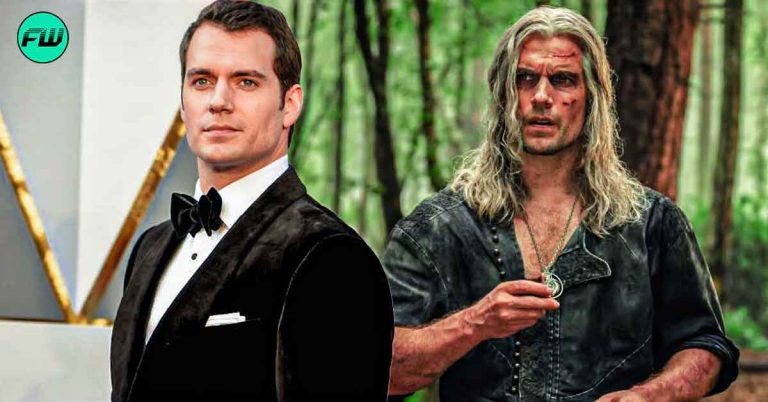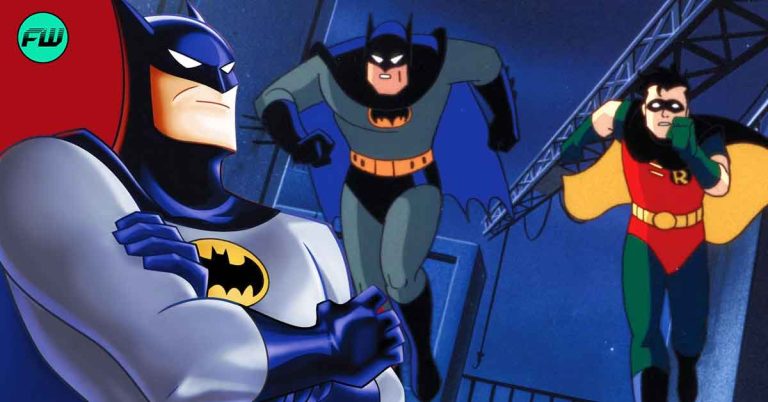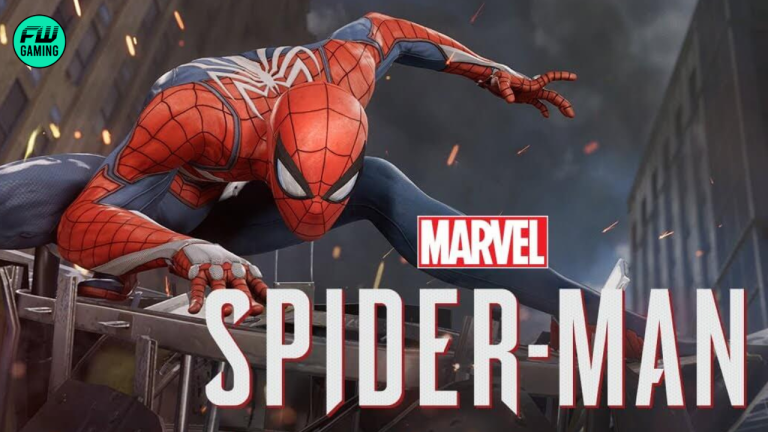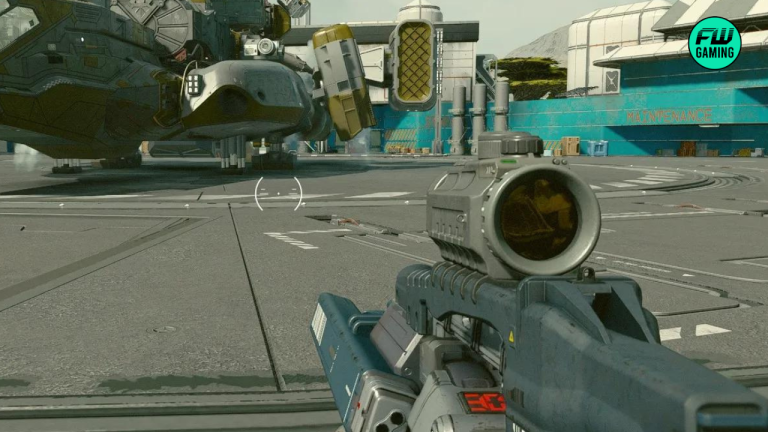In this FandomWire Video Essay, we explore why Die Hard is the PERFECT action movie.
Check out the video below:
Subscribe & hit the Notification Bell so you never miss a video!
Is Die Hard The PERFECT Action Movie?
Die Hard… The 1988 Bruce Willis-led actioner is considered by many to be the Gold Standard for action cinema, setting the bar and creating a new subgenre along the way. In the years that followed Die Hard’s lasting and immeasurable success, we saw continued efforts to recapture the lightning in a bottle through different settings and established action-hero personas. There was “Die Hard on a Plane ” with Wesley Snipes’ Passenger 57. “Die Hard on a Bus” with Keanu Reeves’ Speed. And even “Die Hard on a Mountain ” with Sylvester Stallone’s Cliffhanger. And while some of these films are genuinely great and had solid runs at the box office, all failed to successfully recreate the awe-inspiring greatness of John McTeirnan’s heart-pounding, adrenaline-filled masterpiece.
From the beginning, Die Hard had every reason to fail. From being stuck in development hell, continuous filming issues, and a lead star who wasn’t proven, it should be long forgotten. So, how did it manage to sidestep every curveball and hurdle thrown its way? Why has it become the definitive template and gold standard for action? Well, a significant part of its success comes down to the casting.
If you’re enjoying the content, be sure to give us a like, and don’t forget to subscribe and hit the notification bell so you never miss a video.
The 80s was an iconic decade for action, launching major film franchises like Robocop and The Terminator. It was a time of testosterone and oiled-up muscles with action stars like Sylvester Stallone, Steven Seagal, Jean Claude Van-Damme, and Arnold Schwarzenegger reigning supreme.. which made the casting of Bruce Willis as Detective John McClane a bit of a head-scratching choice. At the time, Willis was best known for starring on the romantic comedy television series “Moonlighting” opposite Sybil Shepherd. He wasn’t seen as an action hero, and there were few who thought he could pull off the role. However, that turned out to be the film’s greatest strength.
Die Hard is an action film that is overflowing with excess. There are explosions, fist fights and more bullets than you can count, but at its core, it’s grounded in realism. There are no cyborgs or technologically advanced alien species. There’s no time travel. There’s just a man who’s in over his head and trying to save the woman he loves. The reason John McClane resonates so well with audiences is because he’s believable. Viewers can see themselves in his character and as a result, experience the tension and the fear along with him. That’s just not something you get with a major action icon because they have a way of feeling untouchable and larger than life in their performances. Willis’ “every man” appearance and persona were a perfect fit for the fish out-of-water detective with marriage issues and no shoes. A realistic portrayal of a believable man facing extenuating, yet realistically plausible, dangers.
And yet McClane as a character could have been so ridiculously different. Starting off as a sequel to 1968’s The Detective, McClane was nearly played by a then seventy-year-old Frank Sinatra. Yes, that Frank Sinatra. The most infamous member of the Rat Pack, Ol’ Blue Eyes. A singer, producer, and of course, an actor with a long and storied career across Hollywood. A Jack of all Trades, and seemingly, a master of them all. He boasts an incredible array of awards and accolades, including over one hundred and fifty million record sales and seventy-plus acting credits. With his performance in The Detective, Sinatra ensured a technicality was in his contract, stipulating that he be offered the role for any future stories or sequels involving the character. Whether it was his lack of desire to play such an energetic and demanding character or his near-retirement from acting altogether, he passed on the role and with that, allowed the film to grow and change into what we know today.
Die Hard changed the landscape of what a hero could be. Arguably, it did the same with villains. Before Die Hard, every hero had an equally unrealistic villain. Whether it was with how unnecessarily evil and maniacal they were, or the larger-than-life, unique features they possessed, villains were usually as ridiculous and unrelatable as the heroes they faced. Introducing the late Alan Rickman, Die Hard took an unknown quantity on the big screen and molded him into one of the most prominent, quotable, and realistic villains to date.
It’s hard to imagine, but back in 1988, Rickman was primarily unknown to mainstream audiences. The classically trained actor had spent his career dedicated to the stage and had yet to appear in film or television. As unbelievable as it may sound, Die Hard was his very first offered role, one he initially didn’t want to do. Thanks to an appreciation for the script, being allowed his own input on the character, and a less-than-subtle nudge from his agent, he agreed to take the role.
If you remove Rickman from the equation, the film doesn’t work, not on the same level anyways. He used his gravitas, subtlety, and stage-acting chops to bring Hans Gruber to life. A massive counter to the typical one-dimensional, brute-force nature of most action villains. Gruber’s greatest strength is his mind. He’s cunning, meticulous, and as intelligent as he is ruthless. An equally believable foe Willis’ believable and hesitant hero.
In an interview with The Hollywood Reporter back in 2015, Rickman said of the script:
“Not to get a sledgehammer out to it, but every single black character in that film is positive and highly intelligent. So, 28 years ago, that’s actually quite revolutionary and quietly so.”
By today’s standards, Die Hard isn’t a particularly progressive film, but as Rickman points out, in the late eighties, the African American characters being written and portrayed in such a positive and important manner was groundbreaking. With the exception of Predator, action films of the seventies, eighties, and nineties generally featured a predominantly white cast and, along with the horror genre, relegated minorities to nothing more than cannon fodder.
Die Hard not only wrote characters that allowed a greater representation, a regular occurrence in the franchise, but it also made them pertinent and useful characters to the plot and the hero, not just there to make up the numbers. Reginald VelJohnson plays Sgt. Al Powell in what could have been a small, insignificant part, but quickly became an integral piece of the film. From his introduction to film’s end, he’s not only the sole contact for McClane on the outside, but he’s also the only police officer that has any belief in his abilities and what he’s doing. He trusts McClane completely, and McClane him, and they develop a shorthand between themselves akin to a more standard cop-buddy fare. Within a few short scenes, we learn so much about him, from details about his pregnant wife to the poignant and painful story he tells McClane about his past involving a young child. This comes full circle in the film’s climax when we see Powell take action to shoot and kill the surprisingly hardy Karl Vreski in a final act of violence. Powell receives his redemption, and he does so in the final moments of the film with the very last on-screen kill.
There are few, if any, action movies that would be willing to give the lofty title of ‘last kill’ to anyone but the lead man.
There is always room for improvement, though, and the discussion is far from over, but with inclusion and representation such an important topic now, it’s good to recognize the significance if understated, role Die Hard played.
This inclusivity is a small part of the realistic portrayal of a ridiculous, rare, and frankly unrealistic situation. After all, how many of us end up hostages of gun-toting, murderous, and psychotic thieves at our yearly Christmas parties?
It’s these sort of ridiculous premises that action films thrive off. A rogue bends the rules cop and does anything to catch the bad guy, a retired and out special forces soldier that is forced to return to the fold in order to save those he loves and countless others. Action films are ripe with tropes, and Die Hard certainly has a few of its own, but it also sidestepped a considerable amount. There’s no conveniently placed weapons when McClane is running low, no magic escape route when he’s pinned down, no plot armor to stop him getting seriously hurt. Instead, he ends up having to fight with what he has around him, throwing himself down elevator shafts and off rooftops, and by the end of the film, he’s battered, bruised, and bleeding profusely from his many injuries.
He may be an extraordinary human in an extraordinary situation, but he is still a human with fears like anyone else. The film establishes this early on as we see John McClane aboard a landing airplane. The first glimpse we see of the characters is of his hand, firmly clenched to the armrest. His white knuckle grip is a clear sign of his fright, and the film establishes in its opening credits that John McClane is not a fearless man.
The constant vulnerability of not only McClane but any of the principal characters is palpable throughout, with the constant tension and worry for the characters’ safety felt throughout the film. While McClane is some floors up dealing with the bad guys in a physical, permanent manner, his estranged wife, Holly, is a hostage floors below. She knows that her husband is the one fighting the very people holding her against her will. We, the audience, know who she is. We realize the ramifications of what happens if Gruber connects the dots because we have outside information that all the characters do not. And the film continually plays on this to great effect.
The hostage takers make it abundantly clear that they’re willing to dispose of their captives in order to obtain what they want. A point they drive home by executing Harry Ellis, the sleazy, cocaine-using businessman. His execution sets the stage for the remaining hostages, Holly included, knowing that they could be next. It’s not the act. It’s not knowing. While most action films of the eighties and nineties utilize the supporting cast as disposable characters, Die Hard makes us care about the characters and then constantly teeters on the edge with their vulnerability.
This vulnerability is caused as much by Hans Gruber and his thieving compatriots as it is the bumbling police force on the ground floor outside. It’s local Law Enforcement’s lack of job skill that force McClane to act as a one-man SWAT Team and keep his continued combat with the hostage takers a necessary element. Other than VelJohnson’s Sgt. Powell, every police officer and FBI agent is dangerously inept, verging on incompetent to arrogant and brash. From the second they decide to mindlessly attack the building, vastly overestimating their own capabilities and underestimating Gruber’s men, the police and FBI seemingly do everything they can to either make McClane’s life more difficult or outright try and kill him. Whilst doddering government officials aren’t a new trope in action films, the ones on show here border on negligent throughout, regularly necessitating McClane to act, be it to save the very cops who are trying to hinder him or, more seriously, to stop the entire hostage party being blown to smithereens along on the rooftop.
But Die Hard is more than just guns and muscles. At its core, it was a romantic film about one man trying to avert marital ruin. A heist film about a group of high-end, highly violent thieves trying to steal millions of dollars. And of course, an action film, as well. All of this translates to an incredibly well-paced, tightly scripted adventure where not one second is wasted, and every single moment pushes the film forward.
This almost relentless pace makes the bigger moments feel regular while never overstaying their welcome. Interspersed with McClane’s and Gruber’s witty banter, the film never veers away from huge spectacles. The major action set pieces are necessary to cement itself in the Action Hall of Fame, and the film achieves this through the use of rooftop explosions and Bruce Willis leaping from a skyscraper with nothing but a fire hose keeping him alive. It’s an awe-inspiring moment of visual flair and adrenaline that’s still impressive by today’s standards.
Die Hard makes these moments of pure cinematic fiction feel realistic and grounded. Not entirely, sure. But just real enough that the film never loses its balance. For every scene of a man tumbling down the stairs with his assailant, you get McClane crawling through air ducts; for every scene of McClane pulling glass from his feet while talking to Powell, you get a helicopter whizzing through the rooftops of Los Angeles before exploding off and down the building. The film manages to do something most action films can’t, in that it balances the big explosions and smaller, more intimate moments with neither side feeling forced or tacky. Compare this to 2007’s Live Free or Die Hard, where an aged McClane is driving cars into mid-air helicopters, and the difference is night and day.
The film spawned a successful franchise with admittedly mixed results. It ingrained itself into pop culture to such a degree that characters in other television shows and movies reference the film even now; What’s clear now is that whether it’s the film’s grounded and realistic take on a frankly unlikely and unrealistic scenario, the script, the acting or something else, the film is really a one-in-a-million, magic in a bottle moment that isn’t easily replicated, which is why today it’s the gold standard for action.
Oh, and it’s definitely a Christmas movie.
Do you agree that Die Hard is a perfect action film? If not, which action film takes the title for you? Be sure to let us know in the comments, and be sure to like, subscribe and tune in next time for more great content.
Follow us for more entertainment coverage on Facebook, Twitter, Instagram, and YouTube.

